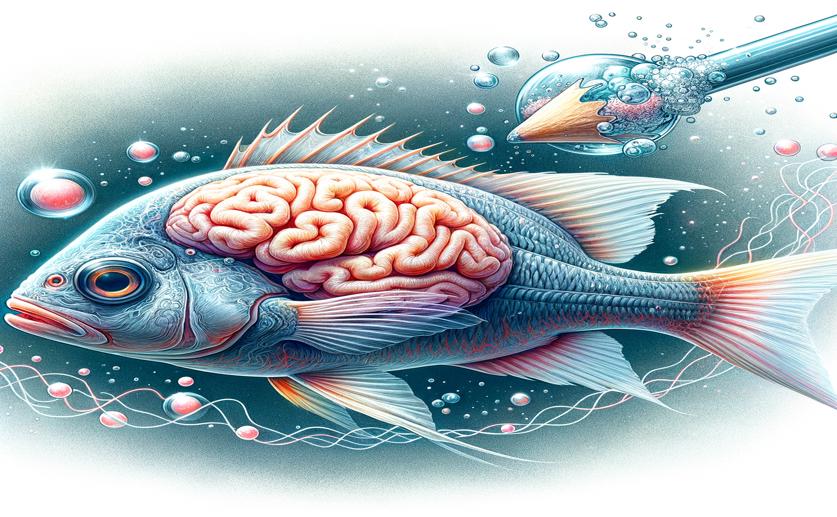
How Fish Brain and Gills React to Acidic Seawater
Jenn Hoskins
23rd March, 2024

Image Source: Natural Science News, 2024
Key Findings
- In a Shanghai study, fish gills quickly respond to ocean acidification by producing stress hormones
- The fish brain's stress response is slower, taking days to react to acidification
- These findings help understand how marine life adapts to environmental changes like increased CO2
EnvironmentBiotechMarine Biology
References
Main Study
1) Response of CRH system in brain and gill of marine medaka to seawater acidification.
Published 21st March, 2024
https://doi.org/10.1007/s10695-024-01332-7
Related Studies
2) Balance dysfunction in large yellow croaker in response to ocean acidification.
3) Characterization of CRH-Binding Protein (CRHBP) in Chickens: Molecular Cloning, Tissue Distribution and Investigation of Its Role as a Negative Feedback Regulator within the Hypothalamus-Pituitary-Adrenal Axis.
4) New Insights Into the Evolution of Corticotropin-Releasing Hormone Family With a Special Focus on Teleosts.
5) Rapid blood acid-base regulation by European sea bass (Dicentrarchus labrax) in response to sudden exposure to high environmental CO2.



 5th March, 2024 | Greg Howard
5th March, 2024 | Greg Howard